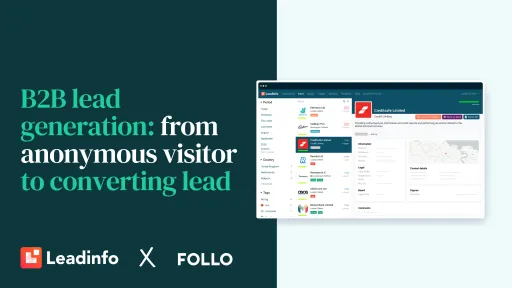You might have seen it on LinkedIn, or in other blogs. The source code of Yandex, a Russian search engine, has been leaked due to a hack. In this source code, the 1922 ranking factors that determine the position of a search result within Yandex were found. Despite its market share being very low, especially in the Netherlands, this still offers valuable insights for SEO in general.
What does this mean for you?
Over the years, several ex-Google employees have worked on the Yandex source code, leading to claims that Yandex has become a sort of Google clone. Although this is not entirely the case, it seems there is a significant similarity between search results generated by Yandex and Google.
The leaking of Yandex's source code certainly has implications for understanding Google's algorithm as well. By examining the 1922 factors, you get an idea of how the Google algorithm might work. Below we share a list of some of the most important factors for SEO.
Types of inbound links
- The age of the links
- The Yandex source code shows that the age of links matters. A younger, more recent link will weigh more than an older link.
- Ratio of good versus bad links
- Although it is not explained what exactly constitutes a “good” or “bad” link, it is clear that you prefer more good links than bad (spam) links.
- Links from a page with a high page rank
- Do your inbound links come from a page with a high page rank? Then that also counts in ranking your own link. So pay close attention when acquiring your links, the higher the ranking of those pages, the better it is for your results.
- Page is from Wikipedia
- It's official: Yandex favors pages that originate from Wikipedia. It is therefore no coincidence that these often appear at the top in Google when you search for information on a particular topic…
- Link from Wikipedia
- Given the previous factor, it is not very surprising that if you have a page where much of the traffic comes from Wikipedia, this is also good for the ranking of your own page.
The structure of your page and website
- The age of your page
- The age of your page and the date it was last updated are also important for ranking. A relevant, recent page will score higher than a page that is several years old and has not been updated.
- The percentage of your pages occupied by ads
- Is your page full of ads? Then you get a lower rank in the search engine. This refers to the total area of the page occupied by ads, and the less space taken up, the better.
- The quality of your content
- Do you have a lot of low-quality content on your website? Then this will also negatively affect pages with high quality. Better a small site with high-quality content than a large site with low-quality content.
- The use of Google Analytics
- Yandex checks whether you have implemented the Google Analytics code on your page. After all, a good website is more likely to use Google Analytics than a poor website where less time is invested. It is not a crazy thought that this is also a factor for Google itself.
- The use of capital letters in your page title
- Thinking about putting a page title in FULL CAPS? Better not: the number of capital letters in your page title has a negative correlation with your ranking in search results.
URL structure on your website
- The use of search terms in your URL
- Do you use the main search terms in your URL? Then you are rewarded for that. The optimal number is 3 keywords from the search term.
- The use of numbers and slashes in your URL
- Here it applies: the fewer, the better. Yandex is not a fan of a URL structure with many numbers and slashes.
- The number of URLs with 40x and 50x errors
- The percentage of your URLs that give an error message also has a negative effect on your ranking. So make sure to prevent this by regularly checking these pages and redirecting them where possible!
- The number of URLs with non-working content
- Do you have a standard video added to your pages, but it doesn't play correctly? You are also penalized for this. Make sure the content you use works on all browsers.
The search traffic
- Traffic to your site and percentage of organic traffic
- These two factors show that buying traffic affects the ranking of your organic pages. If you have more organic traffic, this is good for your ranking.
- Percentage of direct traffic to your site
- If all your traffic only comes from organic search results, Yandex finds this suspicious and it is bad for your ranking. But if you also have visitors who come directly to your page, this is good for your ranking.
- How often your page is the last page during a search session
- Is your page often the last of a search session, indicating that the user found what they were looking for? Then this is also good for the ranking of your page. Logical, because search engines want to meet your search needs.
- How much search volume your website as a whole and pages individually receive
- Is there a lot of search for your website or brand, or do your pages receive a lot of search volume? Then this is also good for the ranking of your entire site. A popular page or well-known brand will therefore rank higher faster than an obscure website.
- The average position of your pages in the search engine
- If you often achieve a higher position on average, this is also taken into account in the ranking of your pages. So if you score high once, this has a positive effect on subsequent pages.
- Percentage of returning users (within a month)
- The number of returning users says something about the quality of your content and the retention of your users. If you provide good content, people will be more inclined to return. This is therefore another factor that indicates the importance of quality over quantity.
As you can see, these are by no means all the factors that count in Yandex, but this is a list of factors that are likely also important in Google's algorithm. Want to read through the list yourself? You can find the entire list here. Note: the descriptions are in Russian. Fortunately, there is also a web tool where you can see the English description per factor…




